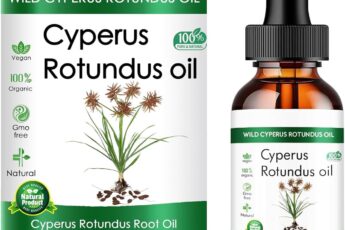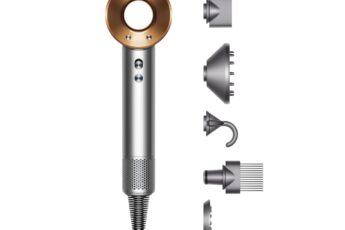Let’s be honest. If you’ve ever stood in front of the mirror pulling at thinning hair, or if you’ve found a little too much on your brush lately, you’re not alone. I’ve been there too. And if you’ve ever typed “best hair growth supplements” into your search bar at 2 AM—yep, I’ve done that too.
There’s so much out there. Gummy vitamins. Fancy capsules. Supplements with names you can’t pronounce. You’re promised thick, luscious hair in weeks. But is any of it real? Or are we just chasing shiny labels?
I won’t give you hype here. What you’ll find instead is real talk. I’ll walk you through what these hair growth supplements are, who might actually need them, and what a few popular ones are like—flaws and all. That way, when you finally decide to swallow that next pill, you’ll know exactly why you’re doing it.
Table of Contents
What Are Hair Growth Supplements Really?
Let’s break this down the simple way. Hair growth supplements are just pills, powders, or gummies that give your body extra nutrients that are believed to help your hair grow stronger, longer, or faster.
Most of them contain things like:
- Biotin (Vitamin B7): Often called the “hair vitamin.”
- Collagen: A protein that helps with structure and strength.
- Zinc: Keeps your oil glands in check and helps with tissue growth.
- Keratin: Another protein your hair needs.
- Vitamins A, C, D, E, and B-complex: All help in one way or another with scalp health and cell repair.
These supplements don’t replace a healthy lifestyle or good hair care habits. What they do is fill in the gaps if your body’s lacking something. But not all of them are made the same. Some are loaded with fillers. Others have way too much of a single nutrient (and trust me, more is not always better).
Do You Even Need Hair Growth Supplements?
I always ask myself one thing before taking anything new: “Do I really need this?” Because just wanting longer hair doesn’t always mean your body is missing something.
Let me walk you through a few signs that might suggest supplements could help you:
- You’re shedding more than usual. Like, way more.
- You’ve been stressed for months and it’s showing.
- You’ve had a baby recently.
- You’re noticing bald spots or thinning around your temples.
- Your hair has stopped growing at the rate it used to.
- You feel like you’re eating well but your hair still looks tired.
If any of those sound like you, then yeah—it might be time to consider support from the inside out.
But remember, supplements are not magic. They support your body. They don’t fix everything overnight. You’ll still need patience.
Also Read: Hair Bonding Treatments That Actually Work: A Simple Guide You’ll Thank Yourself For Later
Viviscal Hair Growth Supplements
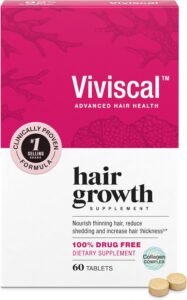
Viviscal has been around for over two decades, which already says a lot. I kept hearing about it from people with thinning hair at the front and crown. So I dug into it.
It’s got a mix of biotin, zinc, niacin, and marine collagen. They call it the “AminoMar” complex. You take two tablets a day, and they say most people start seeing results in about 3 months.
I like that it’s backed by clinical studies. That gives me more confidence than just some influencer waving a bottle.
Pros:
- Proven formula backed by research
- Drug-free and safe for long-term use
- Works across different hair types
Cons:
- Can cause acne or breakouts for some
- A few users experienced stomach discomfort
Nature’s Bounty Optimal Solutions
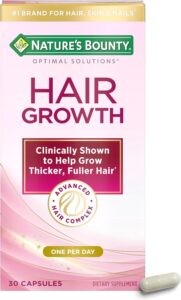
This one’s been around forever. You’ve probably seen it at your local drugstore. It’s a no-fuss, once-a-day capsule filled with biotin, vitamin C, and a little bit of silicon and arginine.
If you’re new to hair supplements, this is a good place to start. It’s affordable and doesn’t overwhelm your system.
The catch? It’s not a miracle in a bottle. Some people swear by it. Others say they saw nothing. That’s the tricky part with supplements—your body decides how to react.
Pros:
- Trusted brand, easily available
- One capsule daily = low effort
Cons:
- Some people report no difference even after months
- Results may be slower for major hair loss issues
WEEM Hair, Skin & Nails Gummies
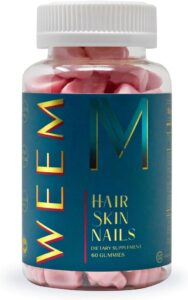
Alright, let’s be real—pills can get boring. Sometimes you just want something that doesn’t feel like medicine. That’s where these gummies come in.
WEEM’s gummies are packed with vitamins A, B, C, E, and biotin. They’re sweet, soft, and actually kind of fun to take. I’ve heard good things from younger users or those who just want to maintain shine and strength.
They’re great if you hate swallowing tablets. But if you’re looking for heavy-duty results for serious shedding? These might not be enough.
Pros:
- Tasty and gentle on the stomach
- Noticeable improvement in shine and softness
Cons:
- Not as potent as capsule-based supplements
- Gummy texture may vary over time
Check Out: The Truth About the Rarest Hair Type (And How to Care for It Naturally)
Nutra Harmony Hair Growth Support
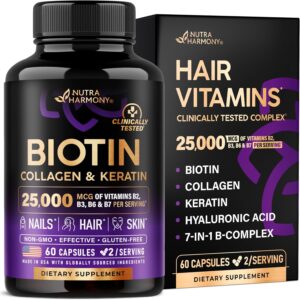
I came across this one while hunting for a biotin-collagen-keratin combo. Nutra Harmony puts all three in a single capsule, along with vitamin C and folic acid. They market it as giving you results in 10 days, which—let’s be honest—sounds a bit much.
Still, some people do say their hair feels stronger and less prone to breakage after a couple of weeks.
If you’re looking for something clean (gluten-free, non-GMO), this one’s not a bad choice. But results seem to swing wildly from person to person.
Pros:
- Includes top three nutrients for hair strength
- Good price point
Cons:
- Can cause more shedding before it gets better
- Some users saw no change at all
Nutrafol Women’s Balance (for Women 45+)
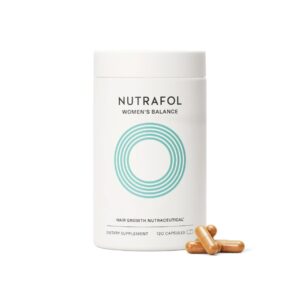
This one’s different. It’s not just a supplement—it’s a strategy. Nutrafol created this version for women dealing with hormonal hair loss due to aging or menopause.
You take four capsules a day. Not exactly fun. But for some women, it’s been a game changer. It targets stress, hormones, and nutrition all at once.
If your hair thinning is linked to life changes in your 40s or beyond, this might be what your body needs.
Pros:
- Addresses hormone-related causes
- Some see regrowth in thinning areas
Cons:
- Pricey
- Can upset your stomach (cramps, bloating, or diarrhea)
How to Choose the Right Hair Growth Supplements
Alright, let’s keep this simple. Here’s what I’d ask myself if I were picking a new supplement right now:
- What’s causing my hair issue? Is it stress? Postpartum? Age?
- Am I okay with taking pills daily, or do I want a gummy?
- How patient am I willing to be? (3–6 months is standard)
- Have I looked at the ingredients? Any red flags?
- How does my body usually react to vitamins?
You don’t need the most expensive one. You need the one your body will actually respond to. And if something doesn’t sit right with you—whether it’s bloating, acne, or nothing happening at all—it’s okay to stop and try something else.
What to Expect After Taking Them
Let me just say this now: there’s no magic switch. You won’t wake up with Rapunzel hair next week.
Most people start to see early signs like:
- Less hair fall in the shower or on the pillow
- Tiny baby hairs sprouting around the edges
- A little more shine and less breakage
- Faster growth (maybe half an inch more per month)
But this only happens if you’re consistent. One bottle won’t do it. And if you’re not also eating decent food, drinking water, and avoiding heat damage… well, no pill can undo all that.
Some people give up too soon. Others keep taking it for a year with no results. The sweet spot? Give it 90 days. If you notice nothing at all after that, it might not be your match.
You Can Also Read: How to Fix Hair Dye Disasters at Home
Conclusion
You know your hair better than anyone. Supplements are just one piece of the puzzle. They can’t replace good habits or fix deep-rooted issues overnight. But they can give your body the nutrients it needs to support better growth, especially when life throws your hair into chaos.
Start slow. Be curious. Be consistent. And always listen to your body.
You’re not just growing hair. You’re learning what works for you—and that’s what really matters.
Frequently Asked Questions
Do hair growth supplements really work?
Yes, they do—but only if your body actually needs what they’re giving. If you already get enough of those nutrients from food, you might not notice much difference.
How long should I take a hair growth supplement?
You’ll want to give it at least 3 to 6 months. That’s how long it takes for new hair growth cycles to kick in.
Are there any side effects?
Some people report acne, bloating, or upset stomachs. Always read the ingredients and start slow to see how your body reacts.
Can I take more than one supplement at a time?
That’s not a great idea. Too much biotin or zinc can actually harm your hair or skin. Stick to one unless a doctor tells you otherwise.


